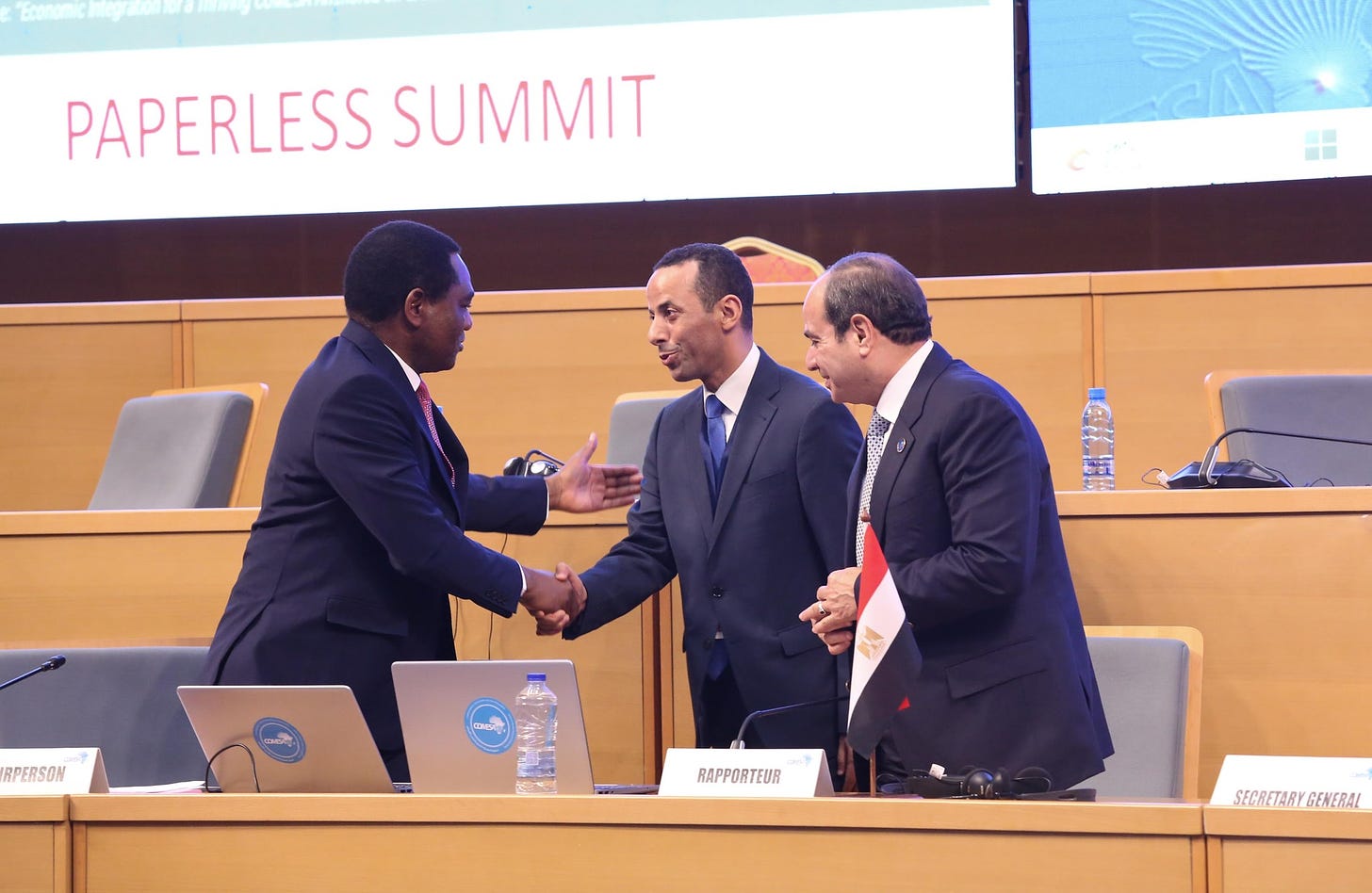COMESA Leaders Call for Serious Commitment to Spur Development
COMESA leaders reaffirm commitment to intra-regional trade, climate change, industrialization, writes Winston Mwale.
LUSAKA, Zambia— Leaders of the Common Market for Eastern and Southern Africa (COMESA) wrapped up their 22nd summit on Thursday in Lusaka, Zambia, reaffirming their commitment to prioritise intra-regional trade, address climate change, promote industrialization, focus on value addition, and ensure peace and security, writes Winston Mwale.
President Hakainde Hichilema of Zambia assumed the chairmanship of COMESA from his Egyptian counterpart, President Abdel Fattah El-Sisi, outlining his regional agenda for the next year.
COMESA, the largest regional economic organisation in Africa, with 19 member states and a population of approximately 390 million, aims to promote economic integration and cooperation among its members.
In his address, President Hichilema called for member countries to demonstrate serious commitment and follow through on the agreed priorities to unlock the untapped potential of the bloc. He stressed the need for a systemic shift towards value addition, particularly in the agricultural sector, to enhance productivity and stimulate economic growth.
“We must embrace value addition, especially of agricultural commodities, to enhance productivity. The shift will also offer higher returns, incentivize industrialization, boost our competitiveness, and create employment,” President Hichilema said.
The summit saw the participation of notable leaders, including President William Ruto of Kenya and President Lazarus Chakwera of Malawi, who delivered their maiden statements since assuming office.
President Évariste Ndayishimiye of Burundi was appointed vice chair, as his country prepares to host the next COMESA Summit in the coming year.
President Ruto emphasised the importance of Africa moving away from primary production and exporting raw materials, advocating for a greater focus on manufacturing.
He highlighted the immense potential for intra-COMESA trade, emphasising the growing demand for value-added products within the region.
“The potential for intra-COMESA trade is colossal; the demand for value-added products is bound to keep growing well into the future,” President Ruto said.
He urged COMESA member states to capitalise on the bloc’s 580 million-strong market demand to boost trade and enhance regional integration.
President Ruto also underscored the significance of leveraging Africa’s abundant clean energy resources to drive industrial development and position the continent as a clean and green hub for the future.
Additionally, President Ruto called for the consolidation of COMESA, the East African Community, and the Southern African Development Community to strengthen the effectiveness of the African Continental Free Trade Area agreement.
He emphasised the need for the African Union to have greater negotiation power to represent the collective interests of Africa on the global stage.
The summit marked the end of President El-Sisi’s chairmanship, during which he offered his condolences to Malawi for the devastation caused by Cyclone Freddy earlier this year.
He expressed his government’s commitment to supporting Malawi’s recovery efforts.
President Chakwera of Malawi confirmed his bilateral talks with President El-Sisi on the sidelines of the COMESA meeting, discussing various areas of mutual interest, including trade, investment, climate change, and social exchange.
“We have held bilateral talks with Egyptian President Abdel Fattah El-Sisi, discussing a number of areas of mutual interest, ranging from trade, investment, climate change, and social exchange,” President Chakwera said.
The leaders agreed to maintain engagement through the Joint Permanent Commission of Cooperation between Egypt and Malawi, paving the way for strengthened ties and increased cooperation in the future.
The summit concluded with optimism as leaders expressed satisfaction with the progress made in advancing development issues during the summit and the bilateral talks.
The collective commitment to prioritise regional integration and cooperation within COMESA is expected to spur development and economic growth in member states.





Local manufacturing is a prime objective for obvious reasons but can it be done so that the product manufactured is at an internationally competitive price. This is the only non inflationary solution and not so easy to achieve as some might think.